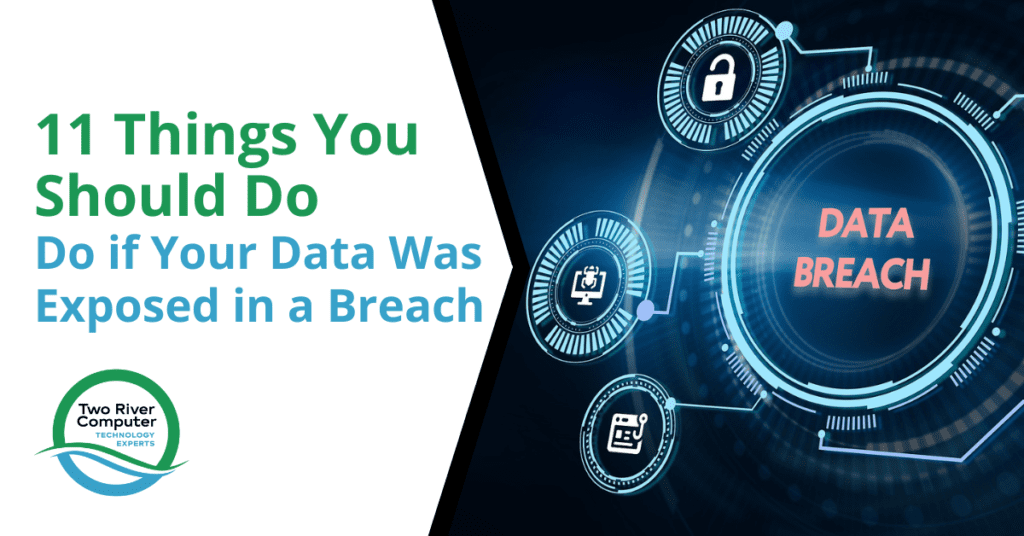
Data breaches are becoming increasingly common, with high-profile companies and organizations falling victim to cyberattacks regularly. These breaches can compromise sensitive information such as personal details, financial data, and login credentials. Individuals need to understand what steps to take if their data is exposed to a breach to prevent further harm.
Continue reading to learn how you can be proactive following a data breach, along with some tips for the long-term protection of your data in the future.
1. Determine if Your Data Was Exposed
The first step to take if you suspect that your data has been exposed to a breach is to confirm that this is indeed the case. The company or organization that experienced the breach may notify affected individuals directly, or you can check online to see if your email address or other personal information has been compromised.
2. Understand What Type of Data Was Exposed
Once you’ve confirmed that your data has been exposed, it’s important to understand what specific information has been compromised.
Was it your personal information, such as your name and address, or was it financial information like a credit card number?
Understanding the type of data that has been exposed will help you take the appropriate steps to protect yourself.
3. Change Your Passwords
If your login credentials have been exposed in a breach, it’s crucial to change your passwords for any accounts that may have been affected. This includes your email account, any financial accounts, and any other accounts that may be linked to the information that was exposed.
4. Enable Two-Factor Authentication
Two-factor authentication is an additional layer of security that requires not only a password but also a unique code that is sent to your phone or email.
This can help protect your accounts even if your password is compromised because hackers and thieves won’t be able to get your information without having access to your device or email account to approve the sign-in.
5. Monitor Your Financial Accounts and Credit Reports
In the event of a data breach, you should keep a close eye on your financial accounts and credit reports for any suspicious activity. Some of the activities you should be on the lookout for includes:
- Unauthorized charges or withdrawals
- New accounts opened in your name
- Changes to your credit or consumer reports
6. Consider Freezing Your Credit
Freezing your credit is a powerful tool that can help protect your identity in the event of a data breach. This will prevent anyone from opening new accounts in your name, and also prevent other parties from accessing your credit report.
7. Be Wary of Phishing Scams and Unsolicited Phone Calls
Scammers may try to take advantage of a data breach by sending phishing emails or making unsolicited phone calls in an attempt to trick you into giving away personal information. Be wary of any emails or phone calls that ask for personal information, and never click on links in emails or text messages that you aren’t expecting.
8. Be Careful About Sharing Your Information Online
One of the best ways to protect your personal information is to be mindful of what information you share online. This includes being careful about what personal information you share on social media, being aware of the privacy settings on your accounts, and being cautious about what information you share on websites and apps.
9. Sign Up For a Credit Monitoring Service
Credit monitoring services can help you keep an eye on your credit reports and alert you to any suspicious activity. This can be a useful tool for protecting your identity in the long term, even after a data breach. Some apps also have notification settings on your phone so you can be alerted right away if anything changes.
10. Review Your Social Media Privacy Settings
Take the time to review your privacy settings on all of your social media accounts, and make sure that you are only sharing information with people you trust. This will help prevent your personal information from being exposed in the event of a future data breach.
11. Keep Your Software and Devices Up To Date
Regularly updating your software and devices can help protect against security vulnerabilities that hackers can exploit. This includes updating your operating system, browser, and any apps you have installed.
Protect Yourself From Data Breaches
Data breaches can be a stressful and overwhelming experience, but by understanding the steps you can take to protect yourself and your personal information, you can minimize the damage. When you assess the impact of the breach, take immediate action to secure your accounts, protect your identity and implement long-term protections, you can help ensure your safety and security in the present and the future.
If you have any questions or concerns about a data breach, don’t hesitate to contact Two River Computer at 732-747-0020. We look forward to helping you with your data privacy concerns and giving you the peace of mind you deserve!


